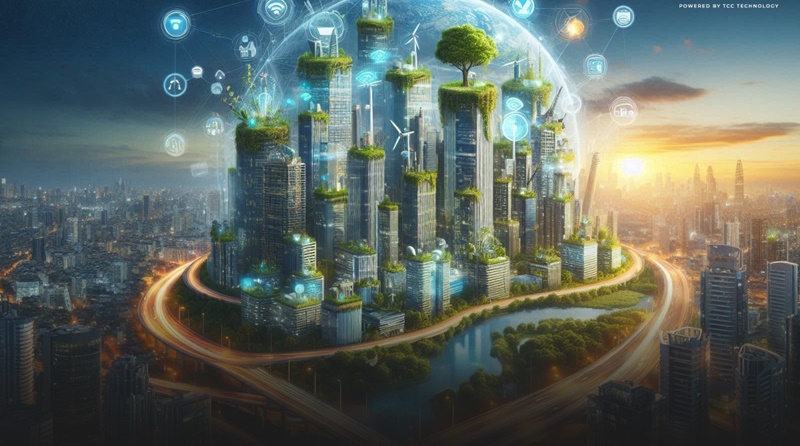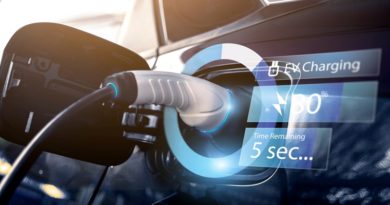Smart Cities: AI and Sustainability for a Better Future
Smart cities integrate technology and sustainability to enhance urban living. OPEN-TEC, powered by TCC TECHNOLOGY GROUP, explores how AI, IoT, and advanced technologies drive sustainability, energy efficiency, and urban solutions.
Sustainability in Urban Development
Aligning urban planning with the Sustainable Development Goals (SDGs) is crucial. Cities like Singapore and Copenhagen lead in green initiatives—Copenhagen aims for carbon neutrality by 2025, while Singapore’s Green Plan 2030 promotes energy-efficient buildings and sustainable water management. Certifications like LEED set benchmarks for eco-friendly construction, as seen in One Bangkok (OBK), designed for LEED-ND Platinum certification through smart energy management and green spaces.
AI and Data in Smart Cities
AI enhances urban management through data-driven decision-making, optimizing energy use, building automation, and environmental monitoring. IoT devices provide real-time insights into air quality and energy consumption. For instance, Seoul’s smart waste bins reduce emissions by notifying collection teams only when full.
Collaboration and Challenges
Successful smart cities require collaboration between industries, academia, and professional organizations. The biggest challenges include the lack of global standards and integrating AI with existing infrastructure. Training programs and research are essential to bridge technical gaps and standardize technologies.
Future Outlook
Despite challenges, smart cities offer vast opportunities—from improving energy efficiency to enhancing urban living. AI-driven tools support traffic management, public safety, and resource allocation. Cities like Bangkok, Singapore, Copenhagen, and Seoul exemplify how technology can enhance quality of life while promoting sustainability.
As urban centers evolve, smart cities remain key to a connected, sustainable future.



